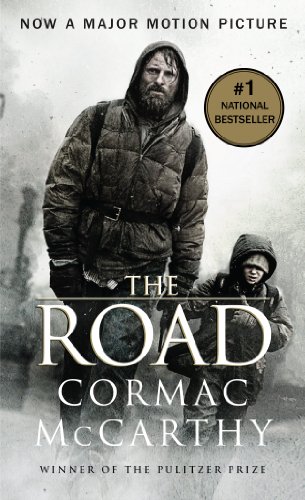 Dorothy, a valued and very informed member of our Iconic Book Group lives in Littletown near Durham City. Now retired she worked for Durham County Library Service for over 40 years and lists books and reading as one of her great passions. She reviews books for the website www.whichbook.net - do give this a try if you don’t know it – it is a very original way of suggesting books for readers.
Dorothy, a valued and very informed member of our Iconic Book Group lives in Littletown near Durham City. Now retired she worked for Durham County Library Service for over 40 years and lists books and reading as one of her great passions. She reviews books for the website www.whichbook.net - do give this a try if you don’t know it – it is a very original way of suggesting books for readers.
Here's Dorothy:
'The Road is a
brilliant novel and a great work of literature – but first and foremost it is
an amazing experience. I was totally
immersed in this grim world and in the story of a man (who is dying slowly and
painfully) and a boy journeying through a country destroyed by some cataclysmic
event. The book portrays a bleak, cold,
grey world which is without hope but where to despair is to die. Yet even in it’s darkest moments this is a
book lit up by a story of incandescent love – the love between a father and
son.
As father
and son plod slowly south on their way to a hopefully slightly better climate
we learn that the father has promised to kill his son at the time of his own
death for he cannot bear to leave him alone in such a hostile world.
From the
very first words of the book - When he woke in the woods in
the dark and the cold of the night he’d reach out to touch the child sleeping
beside him. Nights dark beyond darkness
and the days more gray each one than what had gone before.-
you are
plunged into a harrowing tale of survival
- a story which is both sad and uplifting. The story is told in language which is
beautiful in its starkness and poetic in its rhythms and every word packs an
emotional punch. The use of repetition
is particularly effective. The dialogue
between father and son is heartbreaking and never has the word ‘okay’ been used
to such devastating effect.
Magnificent
descriptions of the desolation of the blasted countryside and the ruined cities
they pass through are contrasted with the unspeakable horrors of human
degradation as the few survivors abandon all morality and fight for their
lives.
This seems to me to be
one of the best novels of our generation.
In fact the book reminds me more and more of “Pilgrim’s Progress” every
time I read it – partly because of the journey and partly because of the
language. If you haven’t read it yet –
drop everything and read it now!'
Dorothy M.
I like the look of www.whichbook.net - Good for readers who want to spread their wings. Wendy


 Dorothy, a valued and very informed member of our Iconic Book Group lives in Littletown near Durham City. Now retired she worked for Durham County Library Service for over 40 years and lists books and reading as one of her great passions. She reviews books for the website www.whichbook.net - do give this a try if you don’t know it – it is a very original way of suggesting books for readers.
Dorothy, a valued and very informed member of our Iconic Book Group lives in Littletown near Durham City. Now retired she worked for Durham County Library Service for over 40 years and lists books and reading as one of her great passions. She reviews books for the website www.whichbook.net - do give this a try if you don’t know it – it is a very original way of suggesting books for readers.